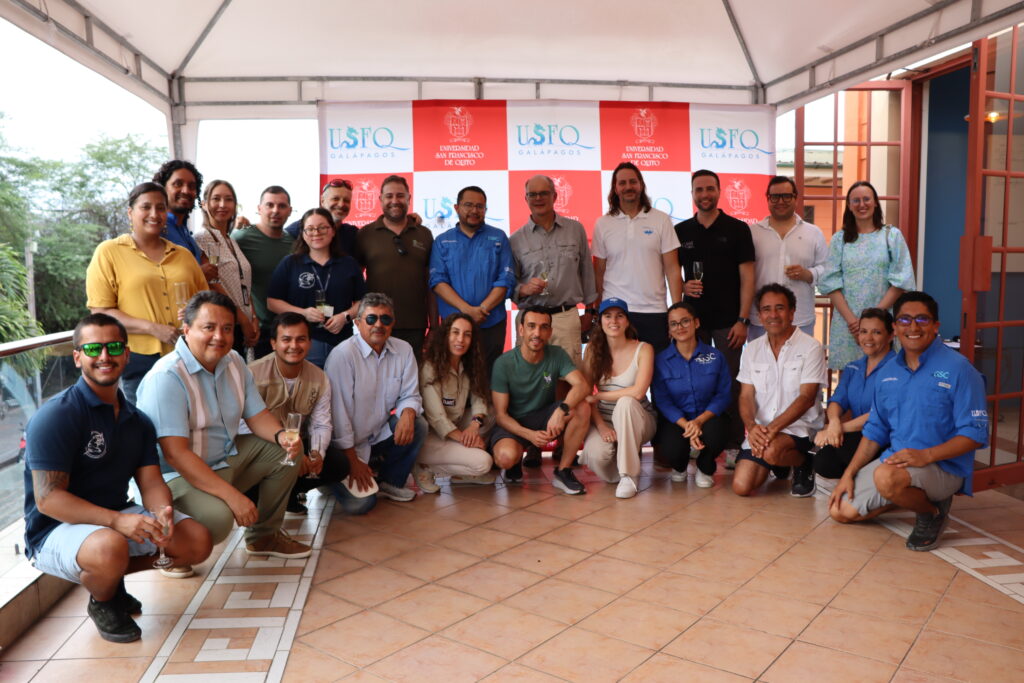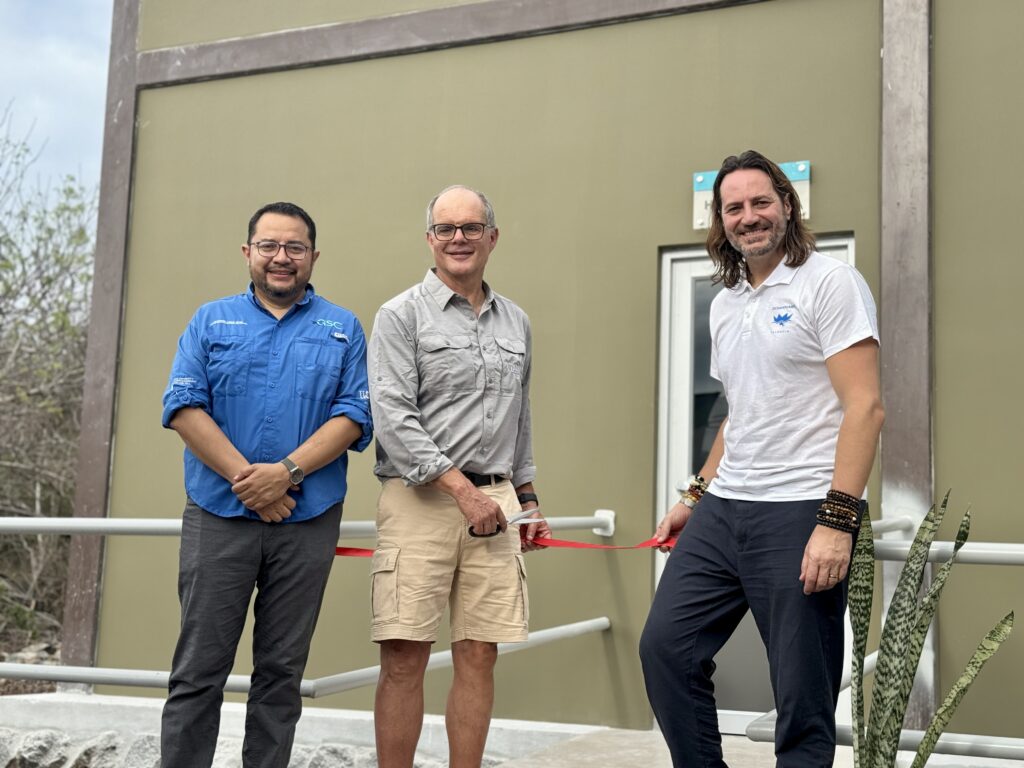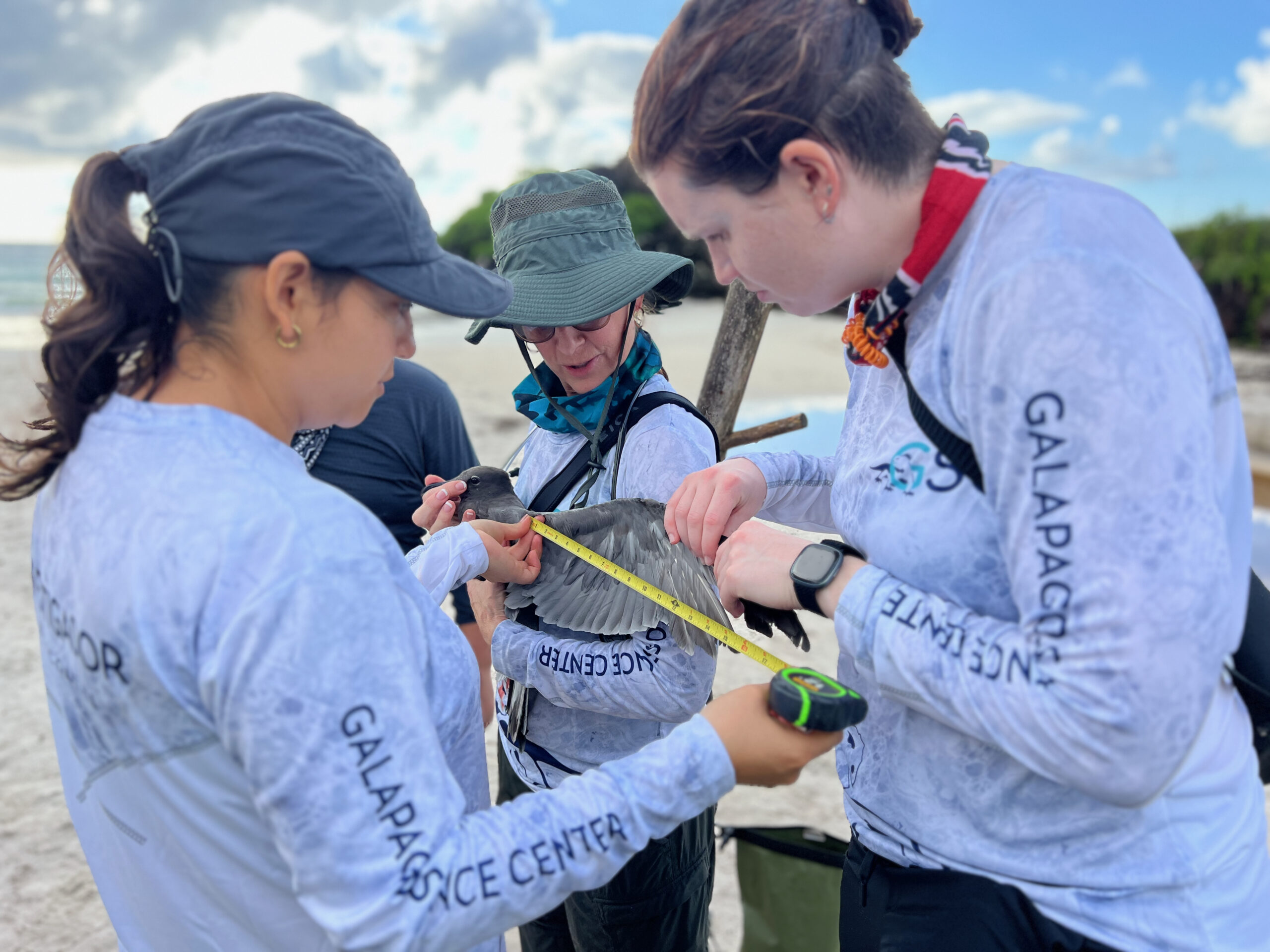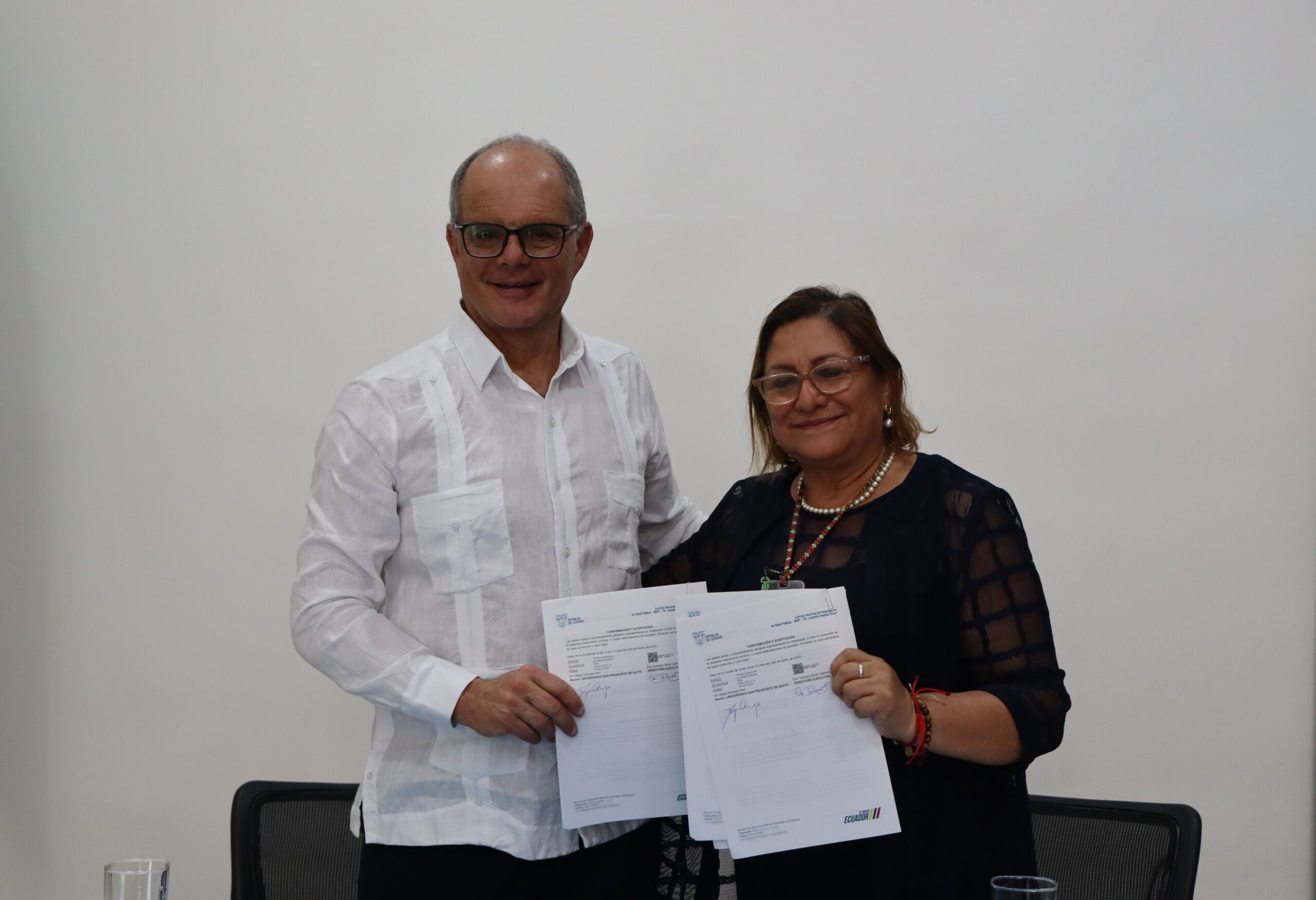Carlos Mena, Director of the USFQ Galápagos campus; Diego Quiroga, Rector of USFQ; Daniel García, Scientific Director and Director of Zoological Operations at the Oceanogràfic Foundation.
At Universidad San Francisco de Quito (USFQ), through the Galapagos Science Center (GSC), we are committed to biodiversity conservation and the well-being of island ecosystems. As part of this effort, we are leading the strategic planning for the implementation of a Comprehensive Wildlife Health System in the Galapagos Islands, an innovative model based on the One Health approach, which recognizes the connection between animal, environmental, and human health.
Our Commitment to Health and Conservation
The Galápagos Islands face increasing threats from global processes such as climate change, infectious disease transmission, and growing connectivity and transportation of materials, factors that raise risks for both biodiversity and local communities. To address these challenges, we must move beyond fragmented diagnoses and work toward integrated, sustainable solutions.
At the GSC, a research center of USFQ and the University of North Carolina at Chapel Hill (UNC), we are developing a sustainable, multidisciplinary program that strengthens local capacity, builds infrastructure for both immediate and long-term responses, coordinates strategic resources, and serves as a training ground for healthcare professionals from the Galapagos and around the world, with a strong focus on One Health.
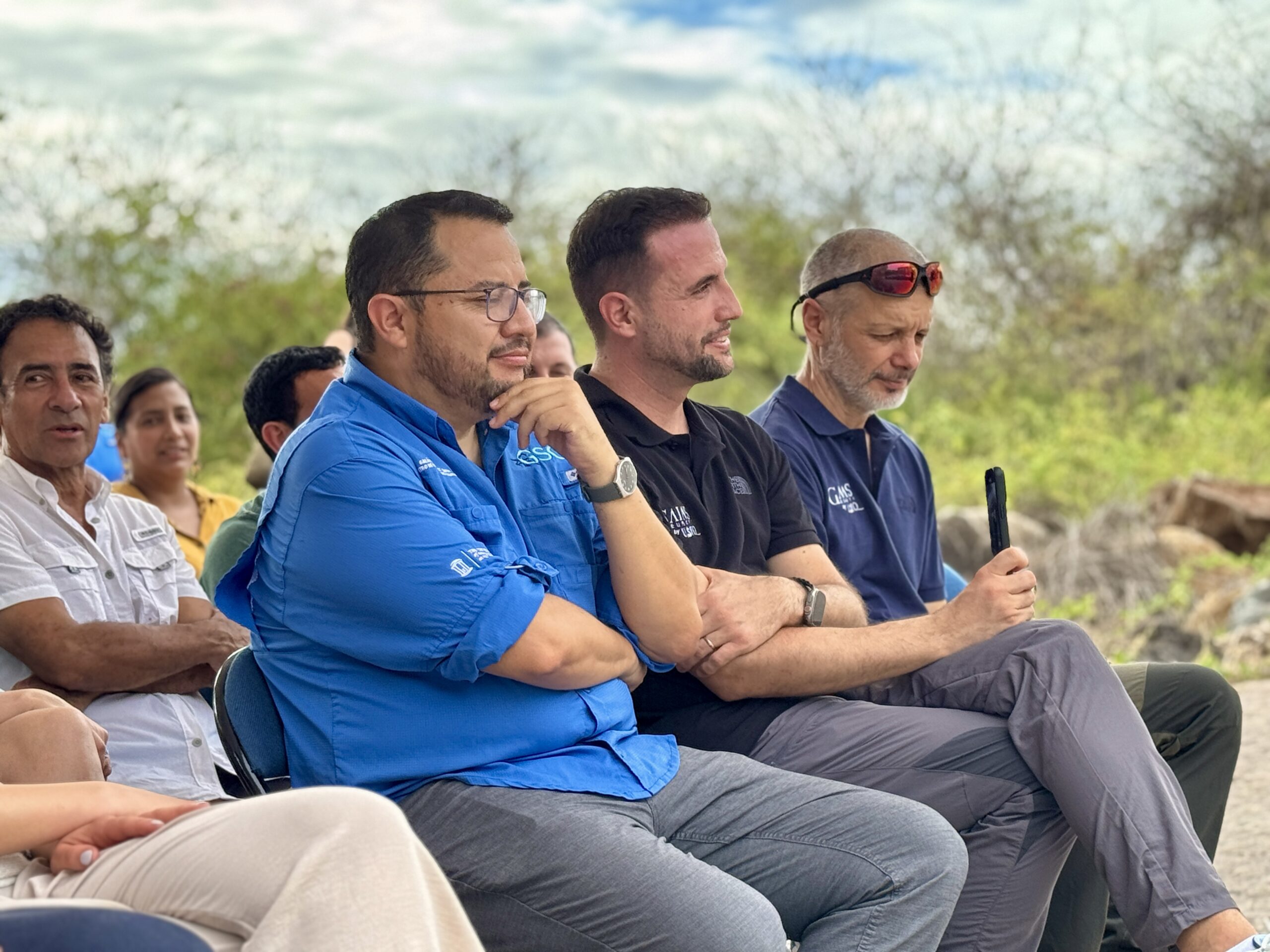
“One Health is illustrated by the following example: sea lions interact frequently with domestic dogs, and dogs interact with people. This means diseases could be transmitted from sea lions to dogs, from dogs to humans, and vice versa. Understanding these interactions helps us prevent pandemics and develop rapid response strategies,” said Diego Quiroga, USFQ President.
As part of this initiative, a workshop was held on February 14, 2025, in Puerto Ayora (Santa Cruz Island), in collaboration with the Galápagos National Park Directorate (DPNG) and the Galápagos Biosecurity Agency (ABG). This event provided a space to exchange information on animal health initiatives, identify key challenges in the region, and define collaborative strategies for implementing the comprehensive system. Concrete next steps were also established for its development.
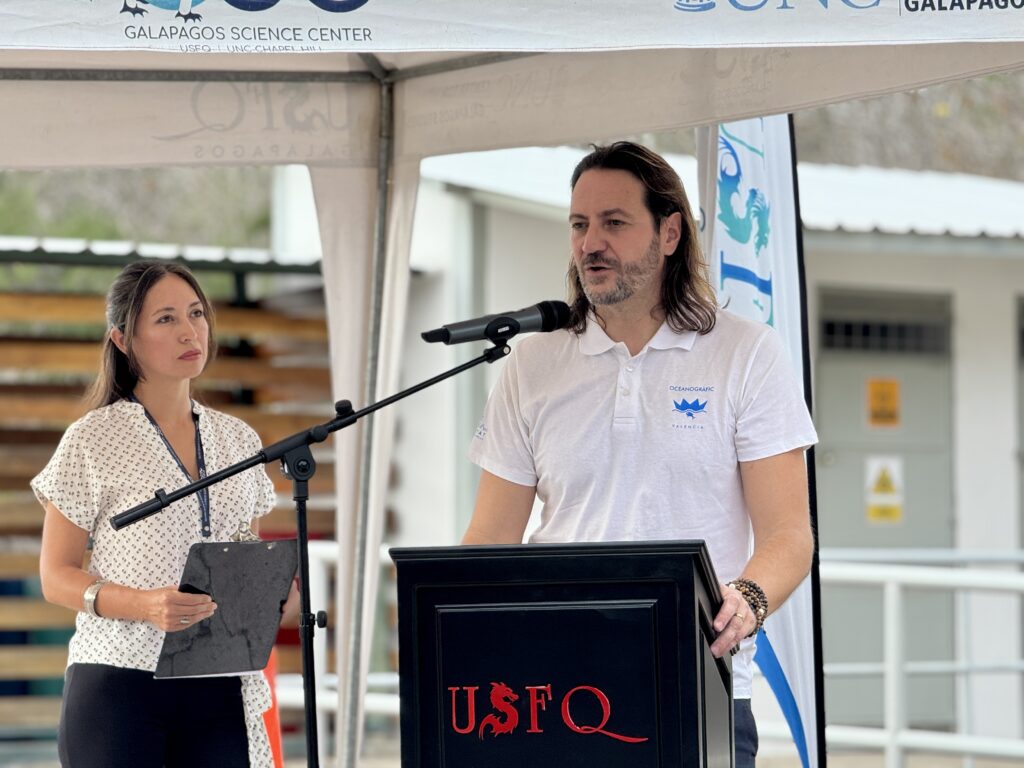
Key Strategies and Partnerships for Project Sustainability
To achieve these goals, we work in partnership with strategic allies, including the Galápagos National Park Directorate, the Galápagos Biosecurity Agency (ABG), the National Institute for Public Health Research (INSPI), USFQ GAIAS Valencia, and international universities such as North Carolina State University. We also have the support of the Oceanogràfic Foundation and other institutions committed to wildlife conservation.
“For us, global collaboration is essential. The world today is highly interconnected, and building bridges between different regions is crucial. Our main goal is to bring Europe closer to Ecuador, making European expertise available here to promote conservation,” said Rafael Jordá, General Director of GAIAS Europe.
At USFQ and the GSC, we are driving concrete actions to ensure the health and conservation of Galapagos wildlife, focusing on:
- Health Monitoring & Surveillance: Implementing protocols for disease monitoring and diagnostics to prevent and mitigate outbreaks in key species.
- Local Capacity Building: Training veterinarians, lab technicians, and National Park staff in wildlife management and ecosystem health.
- Infrastructure Development: Building veterinary labs and clinics in San Cristóbal, Santa Cruz, and Isabela, along with mobile care units.
- Global Academic Training: Establishing exchange programs and wildlife medicine training for students and professionals from Ecuador and beyond, based in Santa Cruz.
- Sustainability & Funding: Securing financial support through strategic partnerships and environmental education programs.
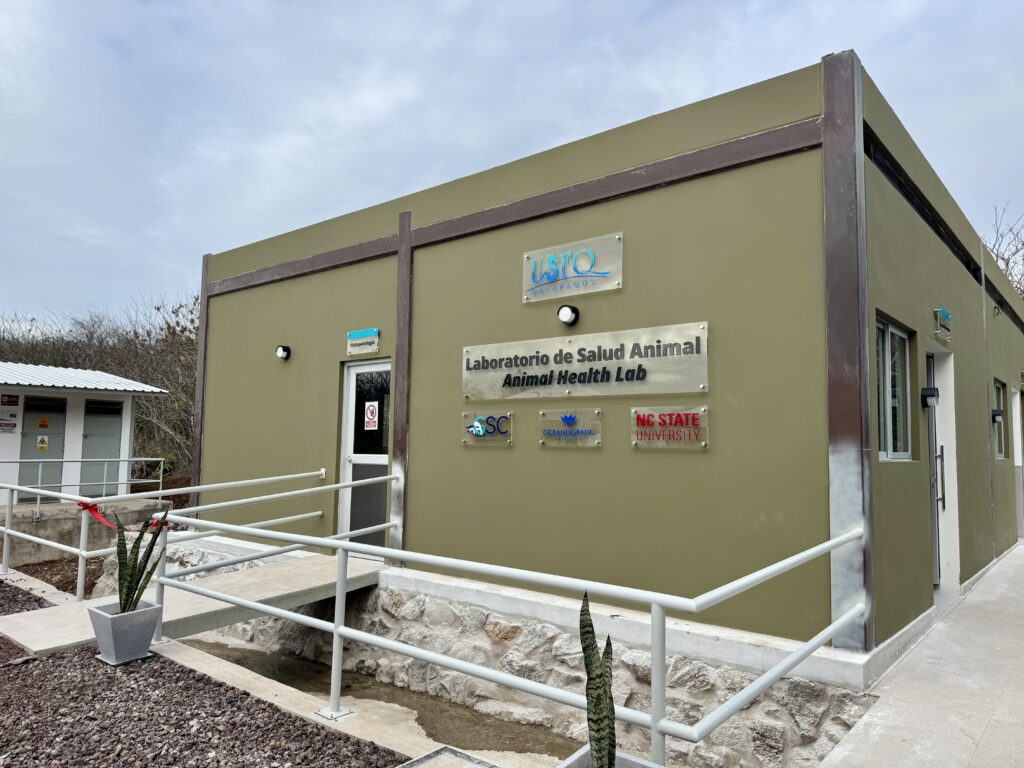
“Oceanogràfic will contribute critical information for conservation. We aim to generate knowledge that helps identify why animals are dying, which viruses are circulating among dogs and potentially jumping to humans, and—through this One Health approach—ensure that wildlife, domestic animals, and humans are properly monitored and managed,” said Daniel García, Scientific Director and Head of Zoological Operations at the Oceanographic Foundation.
Building a Model with Global Impact
The success of this program will not only benefit the Galapagos but also serve as a replicable model for other regions with vulnerable ecosystems. Our goal is to institutionalize this approach and expand its best practices worldwide.
At USFQ and the GSC, we reaffirm our commitment to conservation, applied science, and the development of sustainable solutions for wildlife health. We will continue working with our partners to ensure the long-term viability of this project and to strengthen the link between academia, conservation, and public policy.
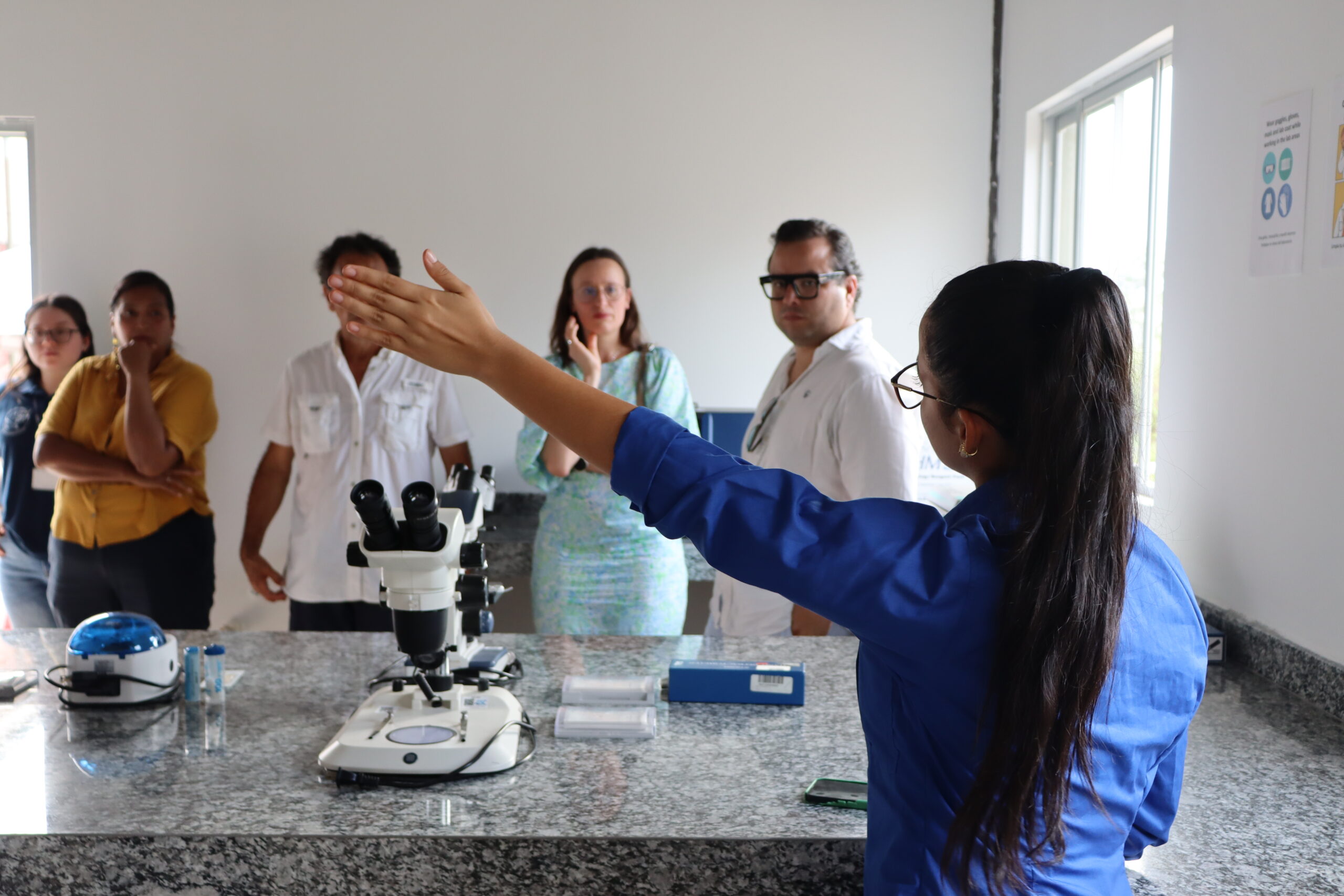
This initiative is a key step toward a future where ecosystem, animal, and human health are addressed in a coordinated, integrated manner. “One of the main priorities within this strategy is the opening of an animal health clinic to study infectious disease processes. We want to understand how diseases found in humans or pets are transmitted to wildlife and vice versa,” said Carlos Mena, Co-Director of the GSC.
